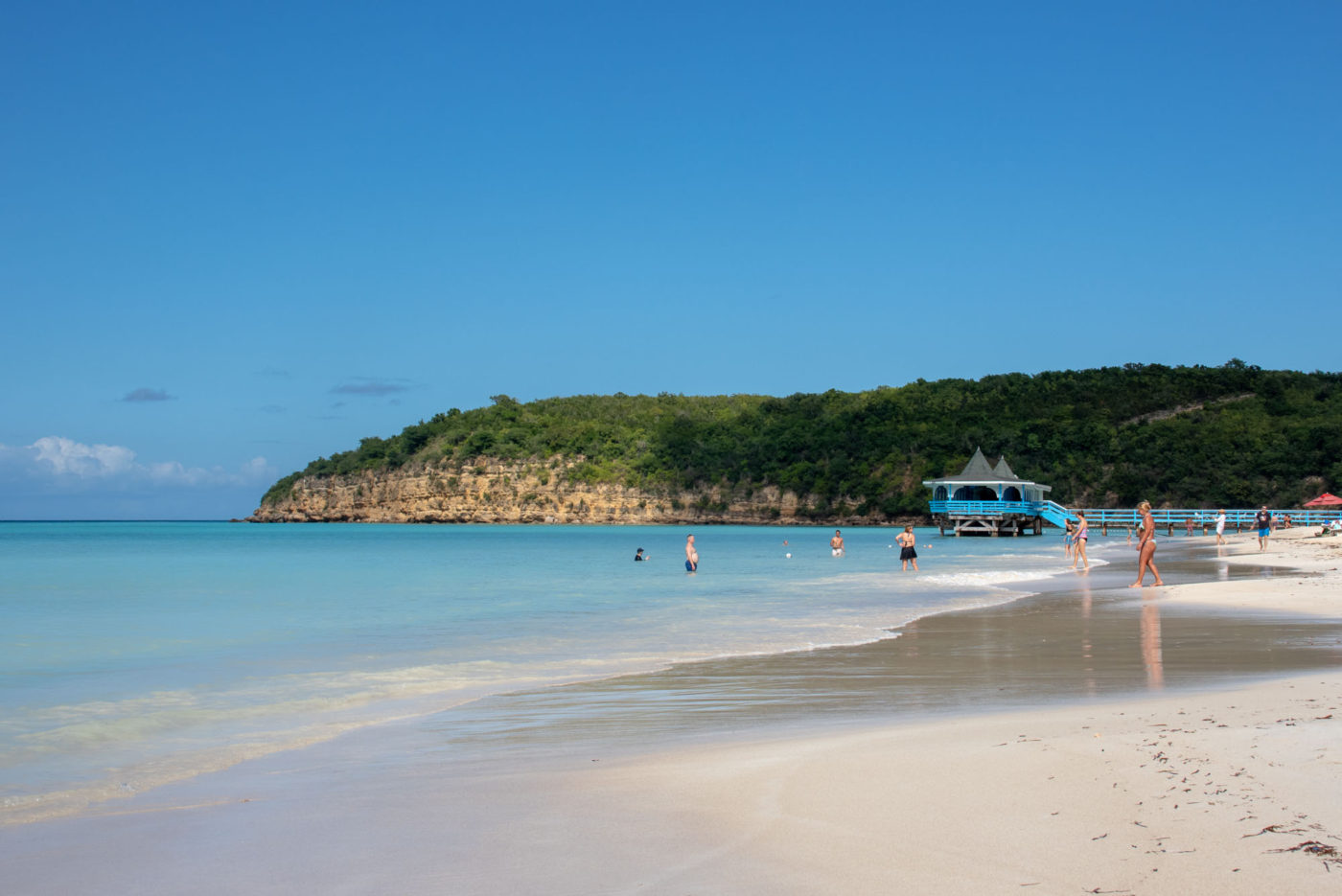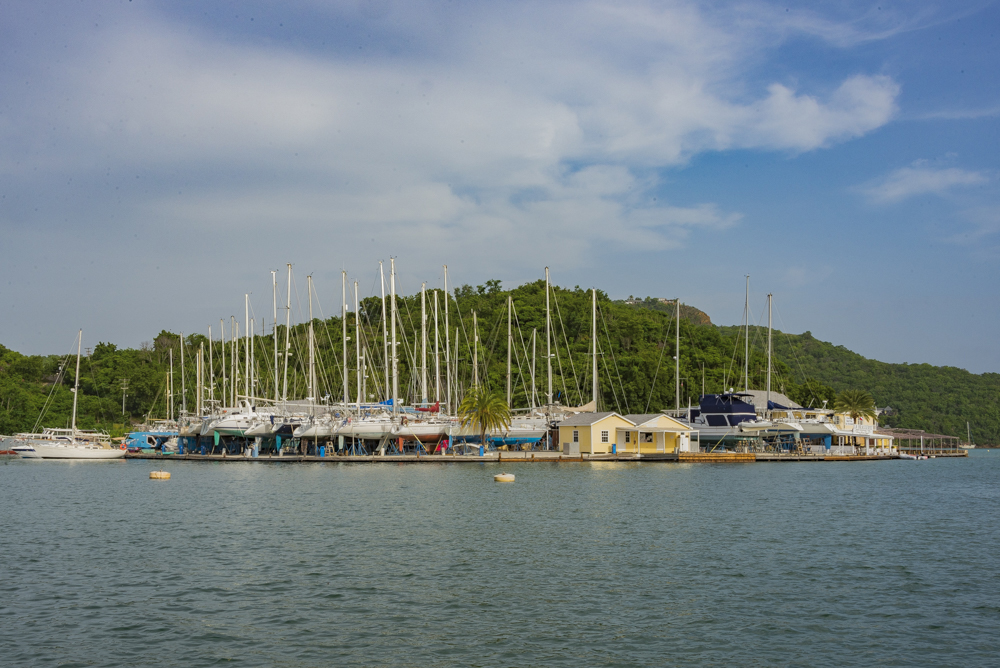Antigua: A Jewel in the Caribbean Sea
Related Articles: Antigua: A Jewel in the Caribbean Sea
Introduction
In this auspicious occasion, we are delighted to delve into the intriguing topic related to Antigua: A Jewel in the Caribbean Sea. Let’s weave interesting information and offer fresh perspectives to the readers.
Table of Content
Antigua: A Jewel in the Caribbean Sea

Antigua, a captivating island nation nestled in the heart of the Caribbean Sea, is a beacon of beauty and allure. Its name, derived from the Spanish word "antigua," meaning "ancient," is a fitting description for a land steeped in history and vibrant culture. Antigua and Barbuda, the official name of the nation, comprises two main islands – Antigua and Barbuda – and several smaller islets. While Barbuda is a haven of serenity and tranquility, Antigua is the heart of the nation, pulsating with life and offering a diverse range of experiences for visitors.
A Tapestry of Geography and History:
Antigua is a relatively small island, spanning just over 440 square kilometers. Its landscape is a captivating blend of rolling hills, lush valleys, and pristine beaches. The island’s volcanic origins are evident in its dramatic cliffs and volcanic peaks, the highest being Boggy Peak at 402 meters. This diverse topography creates a unique microclimate, with a tropical climate tempered by refreshing trade winds.
Antigua’s history is as rich and complex as its landscape. Evidence of pre-Columbian Arawak settlements suggests the island was inhabited long before the arrival of Europeans. In 1493, Christopher Columbus claimed the island for Spain, marking the beginning of a long and turbulent period under colonial rule. The British eventually gained control in 1667, and Antigua became a major sugar-producing center, fueled by the labor of enslaved Africans. The legacy of slavery is still felt today, and the island is actively engaged in confronting its past and building a more just and equitable future.
A Paradise for Leisure and Adventure:
Antigua is renowned for its breathtaking beaches, often referred to as the "365 beaches" – one for every day of the year. From the soft white sands of Dickenson Bay to the secluded cove of Half Moon Bay, Antigua offers a beach for every taste and preference. The turquoise waters are a haven for water sports enthusiasts, with opportunities for swimming, snorkeling, diving, sailing, and windsurfing.
Beyond its beaches, Antigua is a treasure trove of natural beauty and cultural experiences. The island boasts a diverse ecosystem, with lush rainforests, mangroves, and coral reefs. The Shirley Heights Lookout offers panoramic views of the island, while Nelson’s Dockyard, a UNESCO World Heritage Site, showcases the island’s maritime heritage.
A Hub of Culture and Heritage:
Antigua’s cultural tapestry is a vibrant blend of African, European, and Caribbean influences. The island is home to a lively music scene, with traditional genres like calypso, reggae, and soca captivating audiences. The annual Antigua Carnival, a vibrant celebration of music, dance, and costumes, is a testament to the island’s cultural richness.
Antigua’s culinary scene is a delightful fusion of flavors, with fresh seafood, Caribbean spices, and British influences creating a unique and tantalizing experience. From traditional street food to fine dining restaurants, Antigua offers a culinary journey for every palate.
Antigua on the World Map: A Strategic Location:
Antigua’s strategic location in the eastern Caribbean has played a significant role in its history and development. The island has served as a key naval base and commercial center, facilitating trade and communication across the region. Today, Antigua continues to be a vital hub for tourism, finance, and transportation.
The island’s strategic location also makes it a popular destination for travelers seeking a convenient gateway to other Caribbean islands. Antigua’s V.C. Bird International Airport offers direct flights from major North American and European cities, making it an accessible and attractive destination for travelers from around the world.
FAQs about Antigua:
Q: What is the best time to visit Antigua?
A: Antigua enjoys a tropical climate with warm temperatures year-round. The best time to visit is during the dry season, which runs from December to May, offering sunny skies and low humidity.
Q: What are the main languages spoken in Antigua?
A: The official language of Antigua and Barbuda is English. However, the island also has a vibrant Creole culture, with Antiguan Creole widely spoken.
Q: What are the major attractions in Antigua?
A: Antigua boasts a wide range of attractions, including:
- Beaches: Dickenson Bay, Half Moon Bay, Jolly Harbour, and more.
- Historical sites: Nelson’s Dockyard, Shirley Heights, Fort Barrington.
- Nature: Antigua Rainforest, Devil’s Bridge National Park, and the island’s diverse coral reefs.
- Cultural experiences: Antigua Carnival, Antigua Sailing Week, and the island’s vibrant music scene.
Q: Is Antigua safe for tourists?
A: Antigua is generally considered a safe destination for tourists. However, it is always advisable to take common-sense precautions and be aware of your surroundings.
Tips for Visiting Antigua:
- Plan your trip in advance: Book flights and accommodation well in advance, especially during peak season.
- Pack for the weather: Pack light, comfortable clothing, swimwear, sunscreen, and insect repellent.
- Explore the island: Rent a car or take a taxi to discover the island’s hidden gems.
- Try the local cuisine: Sample traditional Antiguan dishes like "fungi," "saltfish," and "pepperpot."
- Respect the local culture: Be mindful of local customs and traditions.
Conclusion:
Antigua, a jewel in the Caribbean Sea, offers a captivating blend of natural beauty, cultural richness, and historical significance. From its pristine beaches and vibrant nightlife to its rich heritage and diverse ecosystems, Antigua promises a truly unforgettable experience. As a vibrant hub of tourism, culture, and commerce, Antigua continues to captivate visitors from around the world, showcasing the very best of the Caribbean.







Closure
Thus, we hope this article has provided valuable insights into Antigua: A Jewel in the Caribbean Sea. We appreciate your attention to our article. See you in our next article!